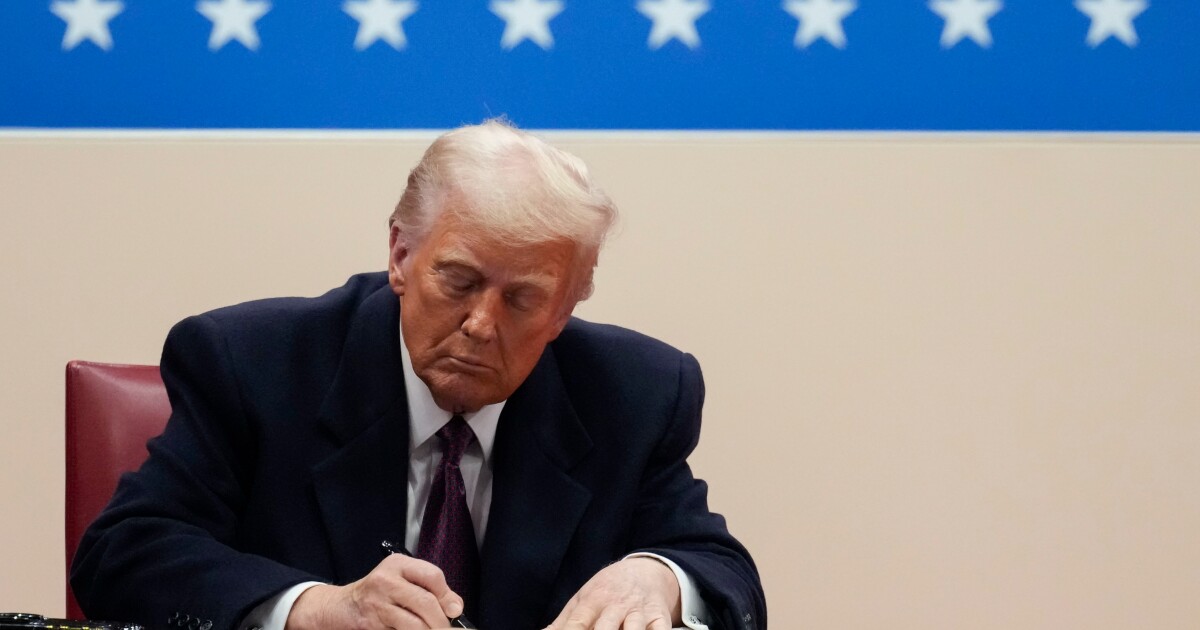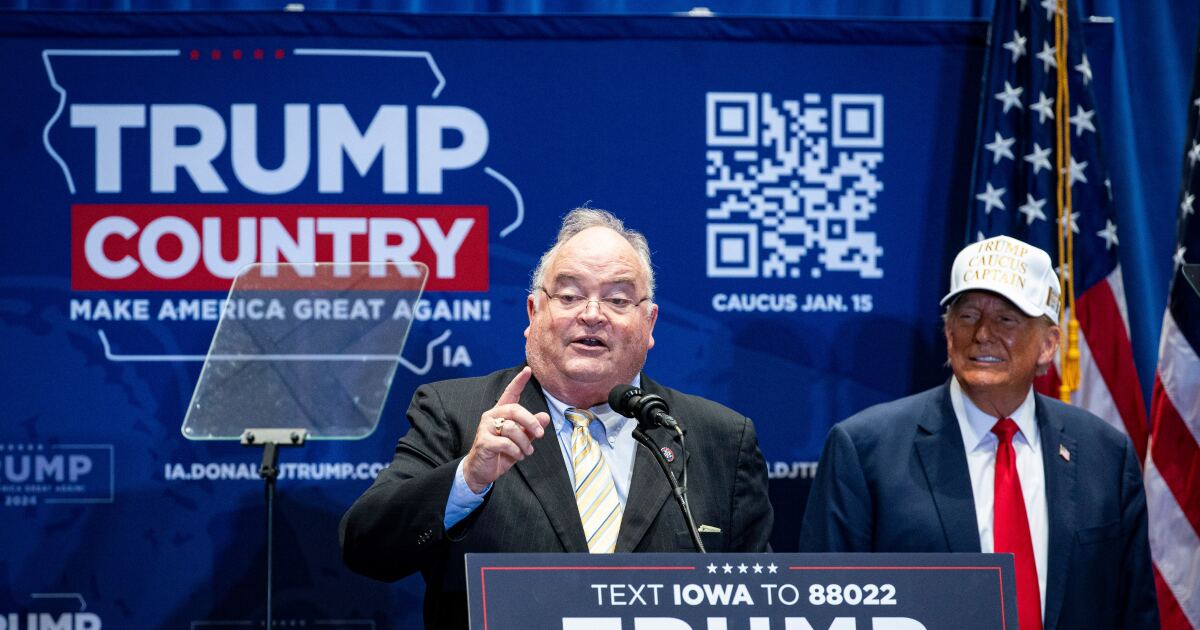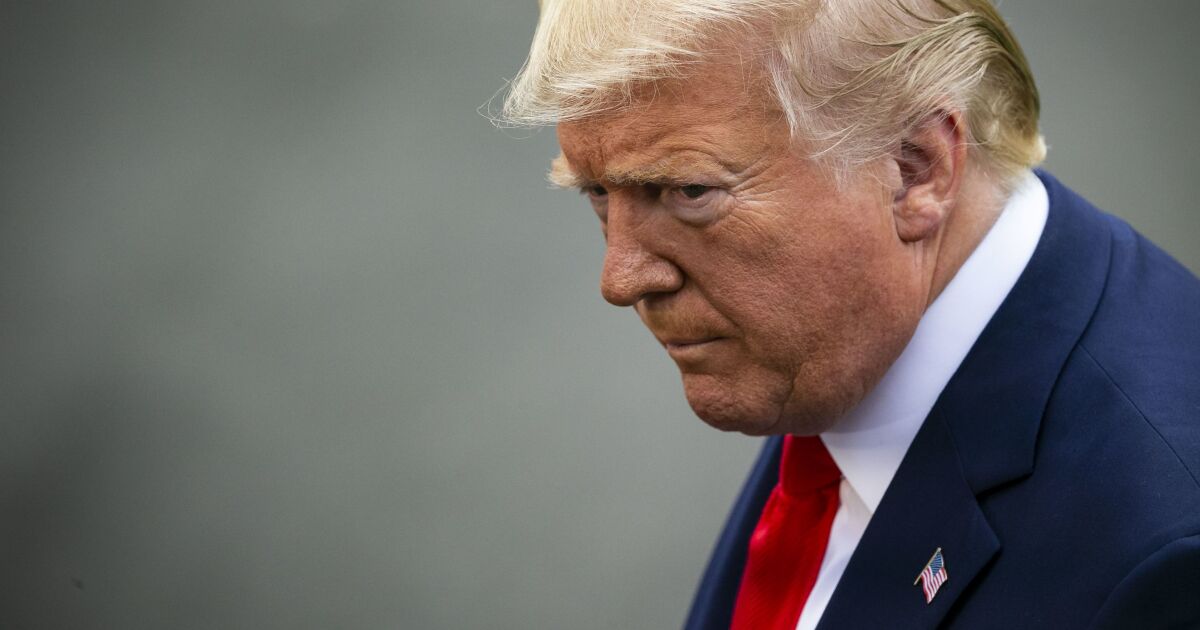President Donald Trump signed a series of executive orders Monday after his inauguration, including a hiring freeze for federal government workers, particularly at the Internal Revenue Service, and backing out of a global tax deal that had enjoyed support from the Biden administration.
“I will also issue a temporary hiring freeze to ensure that we are hiring only competent people who are faithful to the American public. and we will pause the hiring of any new IRS agents,” said Trump during a rally and parade at the Capital One Arena in which he signed several executive orders after the inauguration at the nearby U.S. Capitol. “We will also require that federal workers must return to the office in person.”
Trump then began to refer to claims about thousands of armed IRS agents being hired during the Biden administration, although this claim has been disputed by the IRS and its employee union. “We are going to take the 88,000 people that they hired to go after you with guns — by the way, they are allowed to use guns and harass you like they were, and so many other people,” he said.
Trump then alluded to his campaign promise to exempt tip income from taxes. “Do you remember my little statement about tips? Does anyone remember that little statement? I think we won Nevada because of that statement, but they went out and harassed you over the tips,” he said. “In other words, we are restoring control of our government to the people. We’re going to take those 88,000 — let’s see if they’d like to work on the border because that’s where we want them really. So we are going to have no tax on tips, right? No tax on tips.”
The executive order on the hiring freeze applies more widely than the IRS initially, but then potentially could go on much longer in stopping hiring at the IRS.
“By the authority vested in me as President by the Constitution and the laws of the United States of America, I hereby order a freeze on the hiring of Federal civilian employees, to be applied throughout the executive branch,” it says. “As part of this freeze, no Federal civilian position that is vacant at noon on January 20, 2025, may be filled, and no new position may be created except as otherwise provided for in this memorandum or other applicable law. Except as provided below, this freeze applies to all executive departments and agencies regardless of their sources of operational and programmatic funding.”
The order then discusses several exceptions, including military, armed forces, immigration enforcement, national security and public safety jobs. However, there’s also a special exception for the IRS, which could prove problematic during tax season when the IRS usually hires thousands of temporary workers.
“Within 90 days of the date of this memorandum, the Director of the Office of Management and Budget (OMB), in consultation with the Director of OPM and the Administrator of the United States DOGE Service (USDS), shall submit a plan to reduce the size of the Federal Government’s workforce through efficiency improvements and attrition,” says the executive order. “Upon issuance of the OMB plan, this memorandum shall expire for all executive departments and agencies, with the exception of the Internal Revenue Service (IRS). This memorandum shall remain in effect for the IRS until the Secretary of the Treasury, in consultation with the Director of OMB and the Administrator of USDS, determines that it is in the national interest to lift the freeze.”
One area where Trump may be hiring more workers, however, is in the so-called “External Revenue Service” that he announced last week he wants to create for collecting tariffs. He referred to it during his inauguration speech on Monday.
“I will immediately begin the overhaul of our trade system to protect American workers and families,” he said. “Instead of taxing our citizens to enrich other countries, we will tariff and tax foreign countries to enrich our citizens. For this purpose, we are establishing the External Revenue Service to collect all tariffs, duties and revenues. It will be massive amounts of money pouring into our treasury coming from foreign sources.”
There does not appear to be any executive order yet on exempting tips from taxation, at least on the first day of the administration. Congress would probably need to agree to such a far-reaching change, perhaps including it within the larger reconciliation bill that’s planned for extending the Trump tax cuts.
OECD global tax deal
After the inauguration speech at the U.S. Capitol Rotunda, with further remarks at Emancipation Hall in the Capitol and at Capital One Arena, Trump headed to the White House where he signed more executive orders in the Oval Office while taking questions from reporters. He discussed some of the executive orders, especially the ones related to his pardoning of the January 6 protesters and the 75-day reprieve for TikTok, but others were only posted to the White House website. One involved the global minimum tax deal that the U.S. has been negotiating with other countries in the Organization for Economic Cooperation and Development. The Biden administration has been more receptive than the previous Trump administration to advancing the OECD framework for global taxation, especially outgoing Treasury Secretary Janet Yellen, but Republicans have been mostly opposed to it, so it has not yet been approved by Congress. The executive order seems to revive the Trump administration’s opposition to the OECD framework.
“The OECD Global Tax Deal supported under the prior administration not only allows extraterritorial jurisdiction over American income but also limits our Nation’s ability to enact tax policies that serve the interests of American businesses and workers,” said the executive order. “Because of the Global Tax Deal and other discriminatory foreign tax practices, American companies may face retaliatory international tax regimes if the United States does not comply with foreign tax policy objectives. This memorandum recaptures our Nation’s sovereignty and economic competitiveness by clarifying that the Global Tax Deal has no force or effect in the United States.”
The executive order then authorizes the new Treasury Secretary to inform the OECD about the move. Last week, the Senate Finance Committee held a hearing with Scott Bessent, who has been nominated to lead the Treasury.
“The Secretary of the Treasury and the Permanent Representative of the United States to the OECD shall notify the OECD that any commitments made by the prior administration on behalf of the United States with respect to the Global Tax Deal have no force or effect within the United States absent an act by the Congress adopting the relevant provisions of the Global Tax Deal,” said the executive order. “The Secretary of the Treasury and the United States Trade Representative shall take all additional necessary steps within their authority to otherwise implement the findings of this memorandum.”
The order goes on to say that the Treasury Secretary should also investigate whether any foreign countries aren’t in compliance with any tax treaty with the U.S. or “have any tax rules in place, or are likely to put tax rules in place, that are extraterritorial or disproportionately affect American companies, and develop and present to the President, through the Assistant to the President for Economic Policy, a list of options for protective measures or other actions that the United States should adopt or take in response to such non-compliance or tax rules.”


 Personal Finance1 week ago
Personal Finance1 week ago
 Personal Finance1 week ago
Personal Finance1 week ago
 Accounting1 week ago
Accounting1 week ago
 Finance1 week ago
Finance1 week ago
 Accounting1 week ago
Accounting1 week ago
 Economics6 days ago
Economics6 days ago
 Economics7 days ago
Economics7 days ago
 Finance1 week ago
Finance1 week ago











